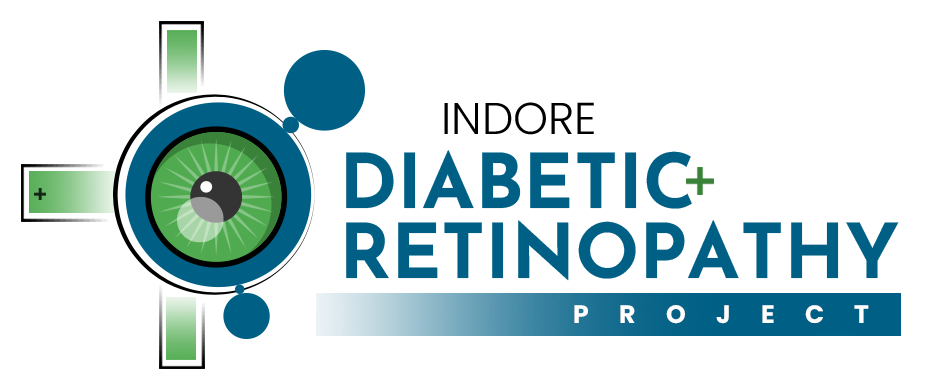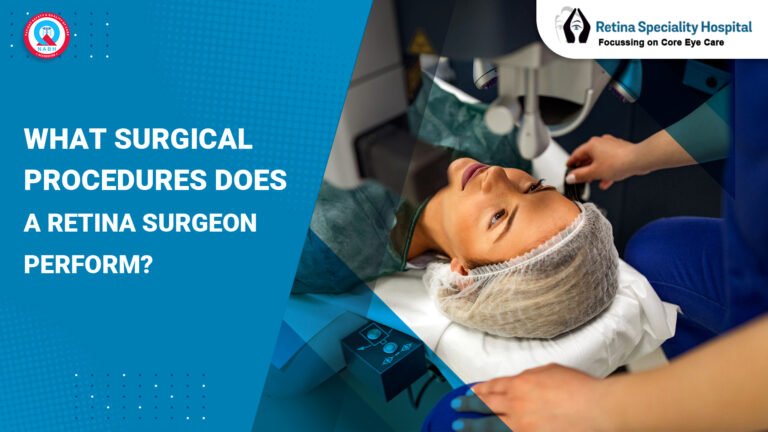Introduction
Retina diseases may seriously affect your vision and life if they are not diagnosed and treated early. They can cause permanent loss of vision. If you see blurred vision, difficulty reading, or blind spots, you might be experiencing a retinal condition. This guide will teach you about the causes, symptoms, and treatments of common retina diseases. By the end of this post, you will be able to know how to care for your eyes and when to seek help from a retina specialist in Indore.
Be it issues related to vision or general knowledge about retinal health, this post will help you with important information including advice from eye hospitals in Indore on how to manage and treat retina diseases effectively.
Causes of Retina Diseases
What Causes Retina Damage?
The retina is the light-sensitive tissue at the back of your eye, important for vision. Diseases in the retina result from this fragile tissue getting damaged or becoming unhealthy. Some common causes include:
- Age-related changes: Age-related macular degeneration (AMD) typically afflicts older adults, who experience slow vision loss.
- Diabetes: Diabetic retinopathy is one of the most common complications of diabetes that causes damage to the blood vessels in the retina.
- Trauma or injury: Any kind of physical injury to the eye can cause a retinal detachment or hemorrhages.
- Genetic: Some genetic conditions, such as retinitis pigmentosa, gradually degenerate the retina.
- High blood pressure: Chronic high blood pressure damages the blood vessels in the retina and leads to retinopathy.
Consult a retina specialist in Indore if you have such symptoms as blurred vision or floaters, especially if you have risk factors like diabetes or hypertension.
Symptoms of Retina Diseases
How to Identify Retina Problems?
Early detection of retina diseases is vital to saving the vision. Here are the major symptoms you should look out for:
- Blurred or distorted vision: This is a sign that your retina is not working correctly.
- Floaters: Tiny spots or lines that float in your field of vision, which can be a symptom of retinal damage.
- Loss of central vision: Difficulty seeing directly ahead is a common symptom of macular degeneration.
- Blind spots: Areas of blindness that may indicate a more serious condition, such as a retinal detachment.
- Light flashes: Sudden onset of flashes of light, which may be a sign of a retinal tear or detachment.
If you find any of these symptoms, you should immediately visit an eye hospital in Indore or a retina specialist to diagnose the cause and prevent further damage.
Treatments for Retina Diseases
Options to Preserve Your Vision
The treatment for retina diseases depends on the type of disease. In most cases, if the disease is diagnosed at an early stage, it can be prevented from further vision loss. Here are some common treatments:
1. Laser Therapy
Laser treatment is used more on diabetic retinopathy and retinal vein occlusion, as most of them help seal leaking blood vessels, preventing further vision loss.
2. Injectables
Medications may be administered intraocularly for age-related macular degeneration (AMD) or diabetic retinopathy in order to prevent further damage to the retina.
3. Surgery
In severe cases, such as retinal detachment or extensive damage, surgical intervention may be required. Other procedures, such as vitrectomy and scleral buckle surgery, correct the retina, restoring eyesight.
4. Anti-VEGF Therapy
Anti-VEGF therapy is another form of treatment for wet AMD and other retinal conditions by inhibiting the growth of abnormal blood vessels through injections.
In case you need the best suitable treatment, you can seek a retina specialist in Indore for personalized guidance.
Why Select a Retina Specialist in Indore?
Advanced Eye Care with Expertise
Proper eye care with a suitable specialist is important, especially in cases of retina diseases because only an advanced retina specialist has the best equipment and skills to accurately diagnose and treat complex eye problems. Indore’s advanced retina specialists utilize modern technology and client-centric methods for maximum outcomes and safety of the patient.
Eye hospitals in Indore offer comprehensive care, from early diagnosis to specialized treatments for conditions like retinal detachment, macular degeneration, and diabetic retinopathy. Make sure to choose an experienced retina specialist who can provide the most advanced treatment options.
Frequently Asked Questions (FAQs)
1. Can Retina Diseases Be Prevented?
While some retina conditions are associated with genetics and aging, maintaining a healthy lifestyle, managing blood sugar levels, and regular eye checkups can reduce the risk of developing serious retina diseases.
2. What Are the Early Signs of Retinal Detachment?
Symptoms include sudden flashes of light, a sudden increase in floaters, and a shadow or curtain covering part of your vision. If you notice any of these signs, seek immediate medical attention.
3. How Often Should I See a Retina Specialist?
If you have any of the risk factors such as diabetes, hypertension, or a family history of retinal diseases, you should go for eye checkups regularly. Patients with known retinal diseases may require follow-up.Understanding the diseases of the retina and their symptoms can protect your vision and allow you to seek timely treatment. If you notice any changes in your eyesight or have concerns about your retinal health, then consulting a retina specialist in Indore is an important step. Early diagnosis and treatment can make all the difference in maintaining your vision and quality of life.
Don’t wait for symptoms to worsen—contact an eye hospital in Indore for an evaluation today!












